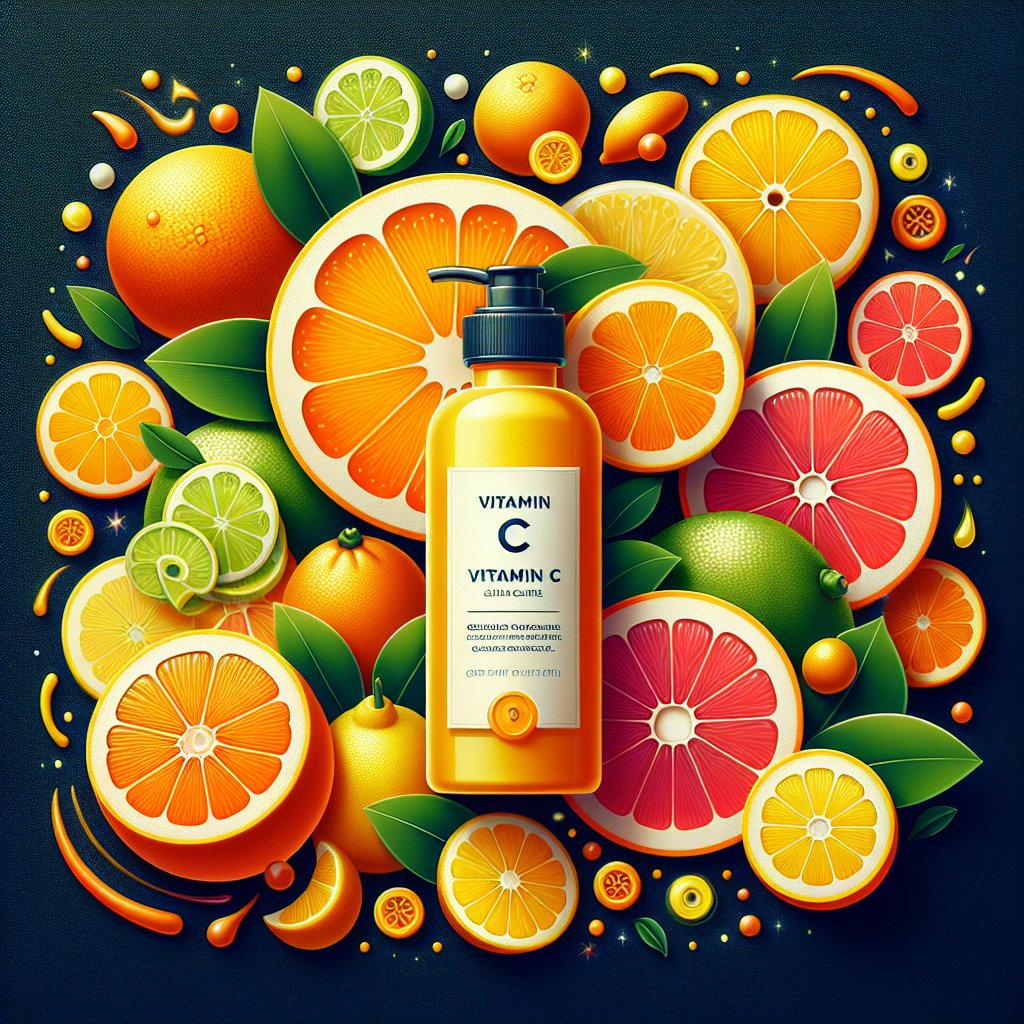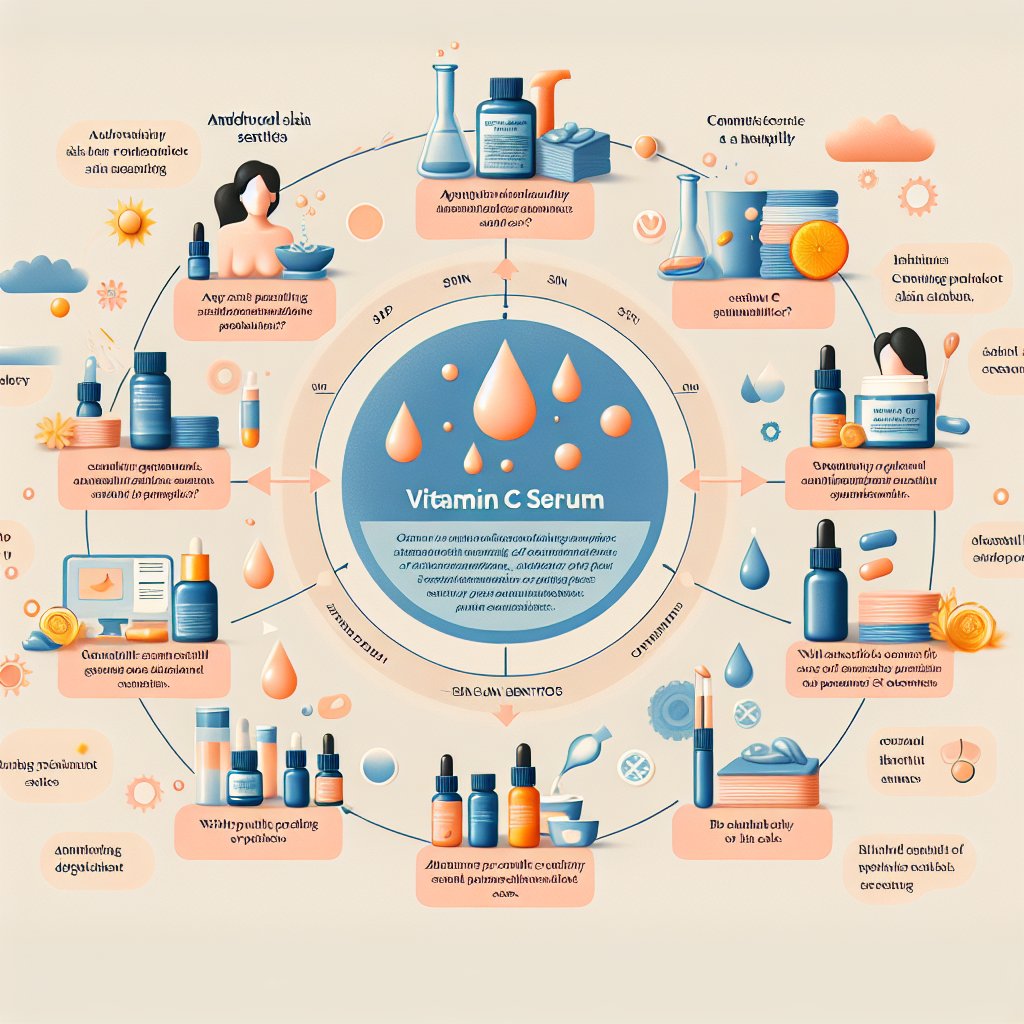Boost Your Recovery: The Essential Vitamins for Wound Healing After Surgery Unveiled!
Understanding the Role of Vitamins in Post-Surgery Wound Healing
When it comes to post-surgery recovery, one often-overlooked aspect is the role of vitamins in promoting wound healing. Did you know that incorporating essential vitamins into your diet can significantly speed up the recovery process and reduce the risk of complications after surgery? It’s true! Scientific research has shown that specific vitamins play a crucial role in supporting the body’s natural healing mechanisms and boosting the immune system, ultimately aiding in the repair of surgical incisions and wounds.
In this article, we’ll delve into the fascinating world of how vitamins can positively impact your healing journey after surgery. Whether you’ve recently undergone a surgical procedure or want to be well-prepared for any future surgeries, understanding the essential vitamins for wound healing is an important aspect of your recovery process.

Key Vitamins for Wound Healing
When it comes to recovering from surgery, specific vitamins play a crucial role in promoting wound healing. Vitamin C, known for its powerful antioxidant properties, is essential for collagen synthesis, a protein that helps wounds heal. Research has shown that adequate Vitamin C intake can help in the prevention and treatment of skin infections.
Vitamin A is another key player in the wound healing process. It supports the maintenance and repair of skin tissue, making it a vital nutrient for post-operative recovery. Additionally, Vitamin E, with its anti-inflammatory effects, boosts immune function and assists in promoting healing. Lastly, Vitamin K is essential for blood clotting, ensuring that the wound is protected from excessive bleeding during the healing process.
Optimizing your intake of these key vitamins through a well-balanced diet and, if necessary, supplements, can significantly contribute to a speedier and smoother recovery after surgery.
Benefits of Each Vitamin
Let’s delve into the incredible role that vitamins play in the wound healing process and post-surgery recovery. Each vitamin brings a unique set of benefits that are essential for healing and restoring the body.
Vitamin A
Vitamin A is a powerhouse when it comes to wound healing. It aids in the formation of new blood vessels, which is crucial for delivering nutrients to the site of the injury. Additionally, Vitamin A supports the production of collagen, a protein that provides structure to the skin and is vital for proper wound healing.
Vitamin C
This vitamin is renowned for its immune-boosting properties, but it also plays a pivotal role in collagen synthesis, assisting in the development of new tissue. Vitamin C is also an antioxidant, protecting cells from damage and supporting a speedy recovery post-surgery.
Vitamin E
Vitamin E acts as a potent antioxidant, effectively reducing inflammation and protecting cells from oxidative stress. This vitamin also supports immune function, which is crucial for fighting off potential infections after surgery.
Vitamin K
Known for its role in blood clotting, Vitamin K is essential for wound healing as it helps to control bleeding. It also aids in the transport of calcium, which is vital for the formation of new bone tissue, contributing to overall recovery.
Each of these vitamins is like a supercharged ally, working in harmony to optimize the healing process and promote a swift and successful recovery after surgery.

Food Sources of Vitamins for Wound Healing
When it comes to speeding up recovery after surgery, getting the right vitamins is crucial. Including foods rich in essential vitamins can significantly enhance the healing process. Here are some natural food sources packed with the nutrients vital for wound healing:
Vitamin A:
Liver, sweet potatoes, carrots, and kale are excellent sources of vitamin A. Including these foods in your post-surgery diet can promote collagen formation and skin regeneration, crucial for wound healing.
Vitamin C:
Citrus fruits, strawberries, bell peppers, and broccoli are packed with vitamin C, which is essential for collagen synthesis and the formation of new connective tissue.
Vitamin E:
Incorporate spinach, almonds, sunflower seeds, and butternut squash as sources of vitamin E. This vitamin helps to reduce oxidative stress and inflammation, thus supporting the healing process.
Overall Word Count: 182
Supplements for Wound Healing
For those who may have difficulty obtaining enough vitamins from food sources alone, exploring the option of supplements can be beneficial for wound healing after surgery. While it’s always best to obtain essential vitamins from a balanced diet, supplements can serve as a helpful addition to promote healing. Research has shown that certain vitamins and minerals play a crucial role in wound healing, such as vitamin C, vitamin A, zinc, and protein supplements. Including these supplements in your post-surgery recovery journey can support the body’s natural healing process, contributing to a speedier and smoother recovery.

Best Practices for Vitamin Intake
When it comes to maximizing the effectiveness of vitamins for wound healing after surgery, it’s crucial to pay attention to the dosage, timing, and combinations of vitamins. Research has shown that certain vitamins play a key role in the healing process, and getting the right amounts can make a significant difference to your recovery.
Vitamin C: This powerhouse vitamin is essential for collagen synthesis, which is vital for wound repair. The recommended dosage for adults is 75-90 mg per day. Taking vitamin C with meals can enhance its absorption.
Vitamin A: Known for its role in the growth and repair of body tissues, vitamin A is crucial for skin health. The recommended dosage ranges from 700-900 mcg for adults. It’s best to take vitamin A supplements with a source of healthy fats for improved absorption.
Vitamin E: As a powerful antioxidant, vitamin E aids in protecting cells and promoting healing. The recommended dosage for adults is 15 mg daily. It’s essential to avoid taking vitamin E within a few weeks of surgery, as it can increase the risk of bleeding.
Combining these vitamins with essential minerals such as zinc and copper can further enhance their effectiveness in wound healing. Consulting with a healthcare professional is crucial to determine the right dosage and combination of vitamins based on individual needs and health status.
Consulting Healthcare Professionals
Before initiating any vitamin regimen, especially for wound healing after surgery, it is crucial to consult with your healthcare provider. Every individual’s medical history and condition are different, and personalized medical advice is essential for the most effective and safe recovery. Your healthcare provider can provide guidance on the specific vitamins and dosages that are suitable for your unique needs, ensuring that you derive the maximum benefits from the vitamins for wound healing after surgery.
Conclusion: The Power of Vitamins in Wound Healing
As we’ve discovered in this article, vitamins play a crucial role in the wound healing process after surgery. Vitamin C, D, E, and K are essential for promoting tissue repair, reducing inflammation, and preventing infection. These vitamins work in synergy to boost the body’s natural healing mechanisms, leading to faster recovery and better outcomes post-surgery.
Scientific research has consistently highlighted the significance of these vitamins in supporting wound healing and tissue regeneration. By ensuring you have an adequate intake of vitamins through a well-balanced diet or supplementation, you can actively contribute to your body’s healing process and promote optimal recovery after surgery.
Remember, always consult with your healthcare provider before making any significant changes to your diet or supplementation routine, especially during the post-surgery period.


